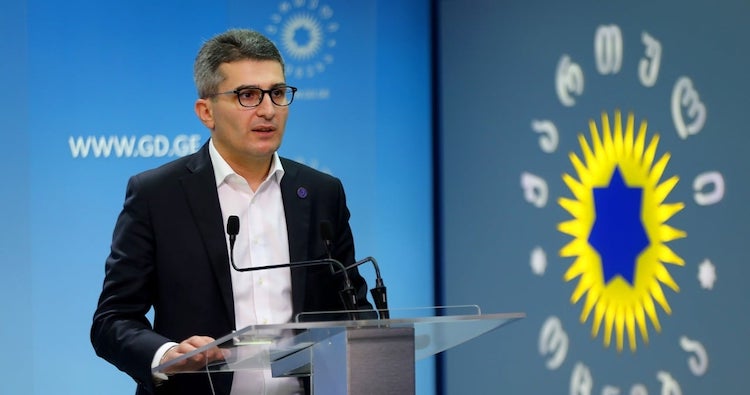Georgian Dream party secretary says “biased” IRI survey “still can’t conceal” support for ruling party

The Institute of Polling and Marketing ran fieldwork for the polling, with data collected through face-to-face interviews in respondents’ homes. Photo: Georgian Dream Press Office
Mamuka Mdinaradze, the executive secretary of the ruling Georgian Dream party, on Tuesday said public support for the ruling Georgian Dream party and its leaders was “so high” that “even the biased organisation” conducting polling for the International Republican Institute “can’t conceal” it in the results of their latest survey.
Mdinaradze was commenting on results of the new nationwide poll conducted by the IRI and released on Monday, which showed if parliamentary elections were held in the country this week, 25 percent of respondents would vote for the Georgian Dream party and 12 percent for the opposition United National Movement.
“Imagine how biased the organisation that conducts IRI's fieldwork is. Despite this, Georgian Dream has the highest overall rating compared to other opposition parties”, he said.
We know that such surveys, conducted by the organisation that cooperates with IRI in Georgia, actually serve the purpose of damaging the image of [institutions like] the [Georgian Orthodox church] Patriarchate [and] individual figures”, Mdinaradze claimed, adding ratings related to the religious institution were “grossly rigged”.
In survey results the Patriarchate has been listed to have been given favourable rating by 68 percent of respondents and unfavourable opinion by 23 percent of those interviewed.
Despite this, support for Georgian Dream, party leaders and its former head [Bidzina Ivanishvili] is so high that they cannot conceal all this - although they do manipulate [the results] more in personal ratings”, the official also said, adding organisers of the polling “still admit” to a “much higher rating” for the ruling party compared to the opposition.
The survey was conducted between September 13-October 2 with 1,500 Georgian citizens aged 18+ and eligible to vote. Dr. Rasa Alisauskiene of the public and market research company Baltic Surveys/The Gallup Organization ran the survey on behalf of IRI’s Center for Insights in Survey Research.
The Institute of Polling and Marketing ran fieldwork for the polling, with data collected through face-to-face interviews in respondents’ homes.
 Tweet
Tweet  Share
Share